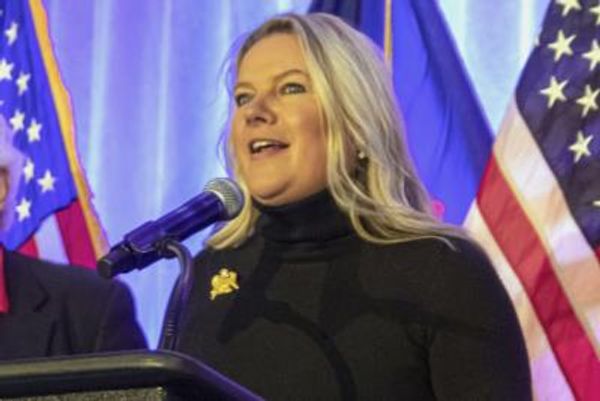FREDERICTON — New Brunswick announced Wednesday it will ease many COVID-19 restrictions next week, increasing gathering limits and allowing businesses to return to full capacity.
Premier Blaine Higgs said the changes will take effect at 11:59 p.m. on Feb. 18 as the province moves to the least restrictive level of the government's COVID-19 winter plan.
The limit on indoor informal gatherings will increase to 20 people from 10. Restaurants, bars and gyms — which had been restricted to 50 per cent capacity — will be allowed to operate at full capacity but will continue using the vaccine passport system. Retail businesses will also open at full capacity. Spas and salons must require proof of vaccination or maintain physical distancing between patrons.
Masks will remain mandatory for all indoor public places and for outdoor public places where physical distancing can't be maintained.
Higgs said he hopes to be able to end all restrictions at the end of winter.
"We will need to see hospitalizations go down as predicted and ensure that our health-care system is not placed under unnecessary strain. But the end of the mandate is certainly in sight," Higgs said at a news conference in Fredericton.
"I am hopeful we will see the end of the emergency order and further restrictions and mandates by the end of March," he added.
Chief medical officer of health Dr. Jennifer Russell said the decision to start easing restrictions on Feb. 18 was based on epidemiological modelling.
"If restrictions were to be reduced right now, we would expect a significant spike in hospitalizations during this month. If we wait another week, hospitalizations will rise modestly and then stabilize," she said Wednesday.
The province reported six more COVID-19 deaths Wednesday, bringing the toll to 275 since the pandemic began. There were 139 people with COVID-19 in hospital — down 12 from Tuesday — and 15 of them were in intensive care. About 329 health-care workers were isolating after testing positive for COVID-19.
Meanwhile, Higgs said a protest against public health measures planned for Fredericton this weekend had nothing to do with the decision to start easing restrictions.
The protest — which has been advertised on social media — calls on people to converge on the provincial legislature and gridlock Fredericton. Participants are being told to "be prepared to sleep in your vehicle and ride this out."
Higgs said that while he knows people are frustrated with how COVID-19 has affected their lives, actions such as those at an ongoing protest in Ottawa are unacceptable. He said his cabinet has approved changes to the province's mandatory order to give police the ability to keep streets open.
"Using a vehicle or other item to contribute to a partial or complete blockage of the normal flow of traffic on any road or highway will be prohibited," Higgs said.
"In addition, anyone organizing or aiding in an interruption in a normal flow of traffic on a road or highway, including delivering food, drink, fuel or other supplies to anyone who is interrupting the flow of traffic will face fines ranging from $3,000 to $10,000 per person, per incident." Fines for any corporations taking part will range from $20,000 to $100,000.
Under the new rules, anyone convicted of using a vehicle to block or restrict the flow of traffic will have their driving privileges suspended for one year.
"I have trust in our police services to manage this situation," Higgs said.
This report by The Canadian Press was first published Feb. 9, 2022.
Kevin Bissett, The Canadian Press







